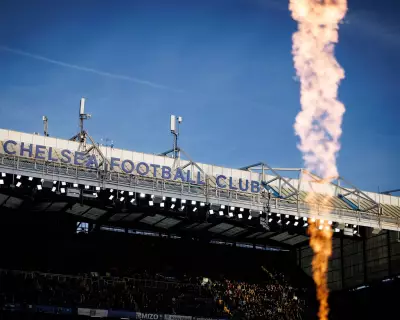
The High-Stakes World of Player Welfare
English Premier League clubs are investing millions in specialised care teams to prevent their star players from becoming unsettled by unhappy partners and family members. This growing trend sees clubs going beyond traditional football support to address the personal lives of their multi-million pound assets.
According to player care expert Hugo Scheckter, who established the Player Care Group in 2020 and has worked with clubs including West Ham and Brentford, the wellbeing of players' families has become crucial to retention. "The partners, especially at the Premier League level, none of them tend to work or very few of them tend to work," Scheckter revealed. "You have a situation where they've just sat around and so trying to provide a purpose for them and a direction for them is really important."
When WAGs Want Out
The consequences of ignoring family dissatisfaction can be severe for clubs. Scheckter explained the direct impact on player performance and retention: "We see it more and more where the player is really happy, but the partner or the family aren't, and that's leading to a player either wanting to leave or talking about potentially having to leave, which is a disaster for clubs."
Several high-profile cases highlight this problem. Manchester City star Ilkay Gundogan's wife Sara famously complained about the dining options in Manchester, stating: "I tried so bad to find a good restaurant but horrible food everywhere. Can't find a real Italian or good sushi or just fresh food... everywhere frozen."
Even more dramatically, former Manchester United player Angel Di Maria's wife Jorgelina Cardoso described her time in Manchester as unbearable. "It was always horrible! I didn't like it at all... People are all weird. You walk around and you don't know if they're going to kill you," she said. Cardoso even claimed the experience made her contemplate suicide, telling her husband: "Darling, I want to kill myself, it's night time at two o'clock."
The Expanding Role of Player Care
Modern player care departments have evolved into comprehensive support systems that handle almost every aspect of a player's life outside football. Hugo Scheckter describes the scope of their work: "For three or four hours a day, players are at the training ground. Everything outside of that can be covered by player care."
The services provided include:
- Personal development and life skills training
- Mental health support and welfare provisions
- Relocation assistance and operational problem-solving
- Family integration programs and partner support
"There's a growing understanding throughout sport that mental well-being is important to performance," Scheckter noted. "We want to take away the burden of the stresses associated with everyday life as much as we can so players can focus on training and matches."
The player care teams have become the repository of intimate knowledge about players' personal lives that coaches and medical staff might miss. "Coaches and medical staff will know everything about a player's performance, but the player care or player support team know far more about their non-football lives than a manager or coach," Scheckter explained. "And the two things are intertwined. One impacts the other."
As Premier League clubs continue to compete for global talent, this holistic approach to player welfare represents the latest frontier in the multi-billion pound industry's quest for competitive advantage, recognising that a happy family often means a settled player.




